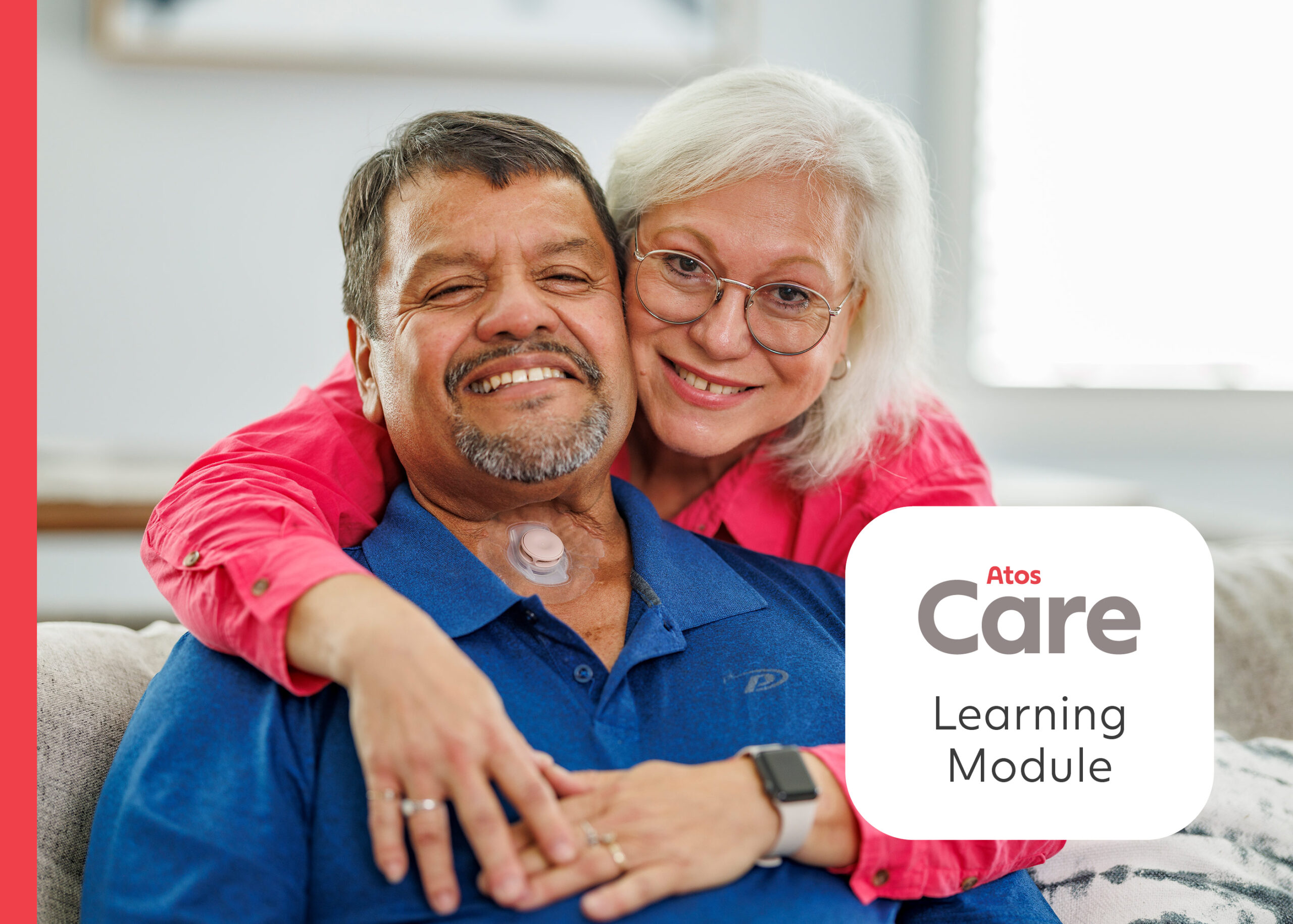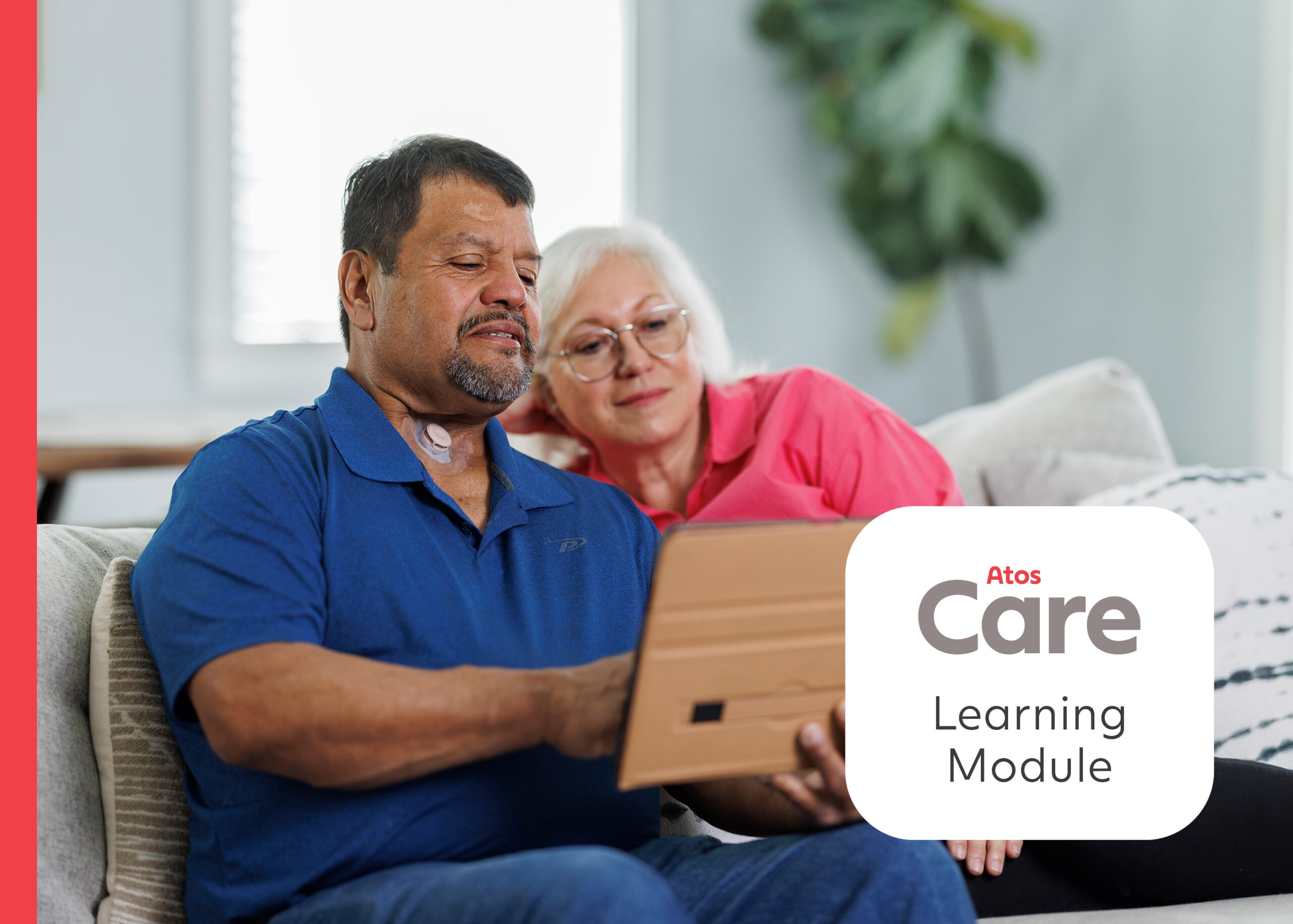Online Learning: Effective Communication and Emotional Support
Discover strategies for communication and emotional support as a caregiver in this online learning course. Led by an experienced speech language therapist, this session provides practical tools to connect with and support your loved one after a total laryngectomy. Learn the following:
- How to foster autonomy
- How to manage emotional challenges
- How to maintain strong social connections during recovery

Course length: 7 minutes
Register today to gain valuable insights in your caregiving journey.
Register now to join
Please submit the form below to access the learning module. You will receive an email with direct access to the course.
*required fields
This site is protected by reCAPTCHA and the Google Privacy Policy and Terms of Service apply.
Enhancing Caregiving: What You Will Learn in This Webinar
Chapter 1: Why Is Effective Communication Essential for Caregivers?
In this online learning module, you will learn about the role of effective communication for a caregiver after a total laryngectomy. You will learn about the importance of maintaining normal communication patterns with your loved one, despite the changes in their verbal abilities. Discover strategies for clear and empathetic communication that can help bridge the gap caused by the loss of their natural voice.
Chapter 2: How Can You Communicate with Someone Who Has Lost Their Voice?
In this chapter, you will learn about the importance of patience and adaptability when communicating with a person with a laryngectomy. You will learn about the value of speaking normally, maintaining eye contact, and using non-verbal communication tools.
Chapter 3: What Role Does Empathy Play in Supporting Emotional Health?
This chapter explores how to recognize and respond to feelings of frustration, sadness, and anger that may arise during recovery. You will learn how you can provide emotional support by respecting their pace, highlighting positive aspects of their recovery, and involving them in decision-making processes.
Chapter 4: How Can You Encourage Autonomy in Your Loved One?
In this chapter, discover ways to gradually encourage your loved one to take on daily tasks independently. Learn how to encourage autonomy by using methods from other routines and observing progress.
Chapter 5: Why Is Social Connection Important During Recovery?
This chapter discusses how you can encourage social activities in quiet, non-crowded environments. You will learn how social interactions and connections can impact recovery.
Chapter 6: What Should You Do When You Need Help or Advice?
Chapter 6: What Should You Do When You Need Help or Advice?
Chapter 7: How Does Your Role Impact the Recovery Process?
This final chapter emphasizes the impact you have in your loved one’s recovery. Learn how to balance communication methods, emotional support, and the promotion of autonomy. Understand the importance of discussing any concerns with your clinician to ensure that you are fully supported in your caregiving journey.
Share
Save to my content

